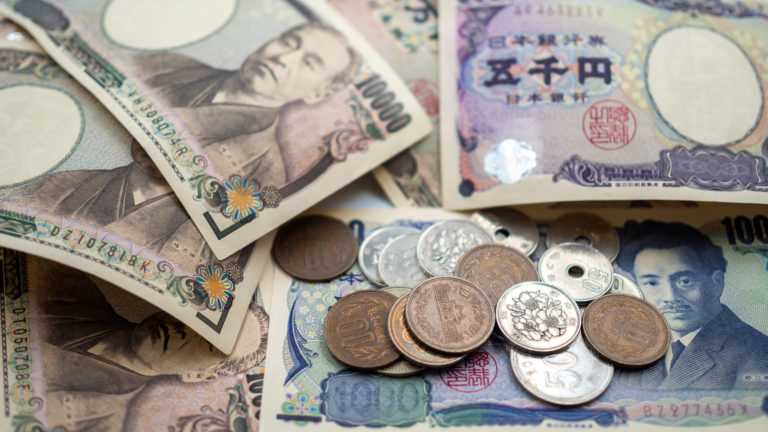Warren Buffett, the famed Oracle of Omaha whose monolithic conglomerate Berkshire Hathaway (NYSE:BRK-A, NYSE:BRK-B) is a favorite of value investors, is betting big on Japan. This has led to the rise of Japan ETF picks.
Notably, Buffett is investing in sogo-shosha, which roughly translates to a general trading company. For all intents and purposes, these firms are the Japanese equivalent of Berkshire Hathaway: massive conglomerates with diverse holdings across many sectors. For example, Buffett Investment Mitsubishi Corporation (OTCMKTS:MSBHF) owns and operates individual companies across finance, energy, automobiles, food, and more. Astute investors will notice this mirrors Berkshire Hathaway’s model, which maintains subsidiaries in sectors across transportation (BNSF Railway Company), food (Dairy Queen), insurance (GEICO), and utilities (PacifiCorp).
While Buffett’s always been interested in Japanese opportunities, he’s scaled his capital allocation to these firms in recent months. As of June 12th, he’s held as much as an 8% stake in Mitsubishi, Itochu (OTCMKTS:ITOCY), Marubeni (OTCMKTS:MARUF), Mitsui & Co (OTCMKTS:MITSY), and Sumitomo (OTCMKTS:SSUMY).
While retail investors can invest directly in these firms, if their brokerage allows over-the-counter market transactions, there’s an easier way to bet alongside Buffett. These three ETFs can help average investors replicate the Oracle’s Japanese holdings and, in some cases, place a bullish bet on Japan beyond Buffett’s own.
Wisdomtree Japan Hedged Equity Fund (DXJ)

Expense ratio: 0.48%, or $48 annually on a $10,000 investment.
Wisdomtree Japan Hedged Equity ETF (NYSEARCA:DXJ) is the best way investors can directly replicate Buffett’s bullish bet. The fund, managed by ETF provider WisdomTree (NYSE:WT), holds each of the five sogo-shosha loves most. Furthermore, with the lowest expense ratio of our three picks and a unique hedging strategy, it’s best for price-conscious traders who prefer downside protection.
The ETF executes currency hedging strategies, which may help investors manage disparities or fluctuations in exchange rates between US dollars and Japanese yen. While this may seem like a minor advantage, foreign exchange rates can shift wildly, quickly, and without warning. These fluctuations represent a significant risk to investors unaware of the potential, ultimately reducing capital gains’ buying power. This makes it one of the best Japan ETF picks today.
In addition to offering exposure to some of Buffet’s best picks, DXJ generates a 3.73% dividend yield and has returned a whopping 30% since January. That’s more than 10% beyond the SPDR S&P 500 ETF (NYSEARCA:SPY) over the same period, reinforcing Buffett’s bull thesis.
Japan Smaller Capitalization Fund (JOF)

Expense ratio: 1.47%, or $147 annually on a $10,000 investment.
The Japan Smaller Capitalization Fund (NYSE:JOF) doesn’t offer the same exposure to Buffett’s preferred picks as DXJ. Still, it does give bullish investors something better: direct access to a diverse range of individual companies within many of the sectors in the five sogo-shosha operate in. Furthermore, JOF’s portfolio picks are small-cap stocks, offering greater room for growth than more mature Japanese firms.
Of JOF’s holdings, 31% is allocated to industrials, 13% to consumer cyclical, 12% to consumer defensive, and 15% to materials. This wide swath of the Japanese economy lets investors stake capital in Japan itself more than relying solely on the performance of a handful of mega-firms and conglomerates. This makes it one of those great Japan ETF picks.
The ETF returned more than 12% since January, offering quality international diversification to a well-balanced portfolio. While the fund’s expense ratio is pricier than DXJ, or our next pick, it’s largely because many of the firms within the portfolio are completely unavailable to retail investors. Ultimately, those bullish on Japan’s future and small-cap prospects should consider the expense ratio reasonable compared to the access the ETF offers.
International Dividend Achievers ETF (PID)

Expense ratio: 0.53%, or $53 annually on a $10,000 investment.
Investors focused on lower volatility, income investing, and broad diversification beyond Japan should consider the International Dividend Achievers ETF (NASDAQ:PID). True to its name, the ETF focuses on international firms offering reliable and sustained dividends. The ETF’s current yield is 3.26%, which aligns closely with perennial US dividend favorite Schwab US Dividend Equity ETF (NYSEARCA:SCHD).
Because the sogo-shosha holdings vary across the value/growth spectrum, not all subsidiaries offer a dividend. Likewise, PID doesn’t hold any of the conglomerates themselves. Instead, PID holds dividend-producing subsidiaries, like Sumitomo Mitsui Financial Group and Mitsubishi Financial Group.
Since dividend-producing firms typically have fewer growth prospects than younger firms who plunge excess earnings into operations, investors shouldn’t expect reliable income and massive growth. Still, true to Buffett’s bullish conviction, the fund returned 12.7% since January. Compare that to SCHD’s stagnant performance year-to-date, and it’s clear that diversifying internationally is a viable strategy, even for risk-averse investors focused on generating income.
On the date of publication, Jeremy Flint held no positions in the securities mentioned. The opinions expressed in this article are those of the writer, subject to the InvestorPlace.com Publishing Guidelines.
